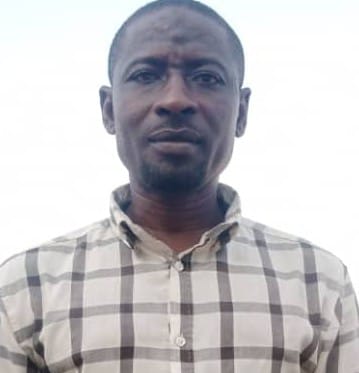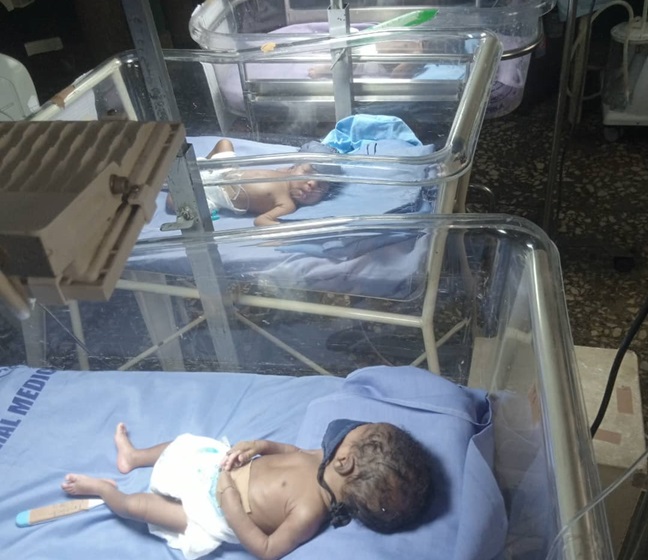
Daniel Otera
The birth of triplets is often a cause for celebration, but for 32-year-old Adamu Muhammed Tenimu, it became an emotional storm of joy, shock, and despair. On Friday, the job-seeking father fainted inside the Federal University Teaching Hospital, Lokoja, after learning that his wife had delivered three baby girls.
According to eyewitnesses, Muhammed was overwhelmed when doctors announced the birth of three baby girls. His collapse drew swift intervention from hospital staff and sympathisers who revived him minutes later.
“I thank God for this miracle, but I am confused and sad,” Muhammed said after regaining consciousness. “We were only expecting one baby. I don’t even have the money to pay hospital bills or buy diapers. I don’t know where to start.”

Hospital officials confirmed that the babies who weighed 1.8kg, 2.0kg, and 2.3kg respectively are in stable condition and are being monitored at the neonatal care unit.
Friends and relatives say the family was financially unprepared for the triple blessing, as the pregnancy was not regularly scanned due to lack of funds.
Mr Nuhu Alhassan, a family acquaintance, described the father as “law-abiding and hardworking,” adding that the family is now in urgent need of medical supplies, food, and financial aid.
“We’re calling on the Kogi State Government, Ministry of Women Affairs, and NGOs to come to their aid. This is a family that needs help urgently,” Alhassan said.

Muhammed’s ordeal is not an isolated case. According to the National Bureau of Statistics (NBS), over 63% of Nigerians about 133 million people live in multidimensional poverty, lacking access to basic necessities such as healthcare, food, clean water, and housing.
The most recent Multidimensional Poverty Index also shows that 65% of these poor Nigerians reside in the northern part of the country, including Kogi State.
In Kogi, access to maternal healthcare remains a pressing concern. A 2018 study by the USAID-supported MCSP programme reported that only 26% of teenage mothers in the state had access to skilled birth attendants, and child malnutrition remains prevalent, especially among families with limited income.The birth of triplets in such socio-economic conditions underscores the stark reality facing millions of low-income families across Nigeria.

According to the United Nations Children’s Fund (UNICEF), Nigeria has one of the highest maternal and neonatal mortality rates in the world, a crisis worsened by widespread poverty, inadequate health infrastructure, and limited access to essential healthcare services.
UNICEF notes that despite global improvements in maternal health, the situation in Nigeria remains dire, particularly in the northern region, where the majority of the population lives in multidimensional poverty and lacks access to skilled birth attendants and neonatal care.
Since news of the birth broke, community members and well-wishers have begun a grassroots mobilisation to support the family. “The joy of childbirth should not be overshadowed by fear of survival,” said Sikiru Olamide, a local resident helping to coordinate relief efforts.
“We urge philanthropic individuals, organisations, and the government to send help. The family cannot do this alone,” Olamide added.
Despite the challenges, Muhammed said he remains grateful for the safe delivery of his daughters, whom he hopes will survive and thrive.
“It’s a blessing, no doubt. But I pray we find help. This burden is more than we ever imagined.”
